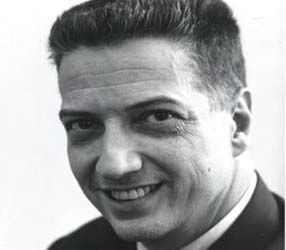John Hammond, in full John Henry Hammond, Jr., (born December 15, 1910, New York, New York, U.S.—died July 10, 1987, New York), American record producer, promoter, talent scout, and music critic who discovered and promoted several major figures of popular music, from Count Basie and Billie Holiday in the 1930s to Bob Dylan and Bruce Springsteen during the rock era. A tireless crusader for racial integration in the music business, he is regarded as the most important nonmusician in the history of jazz. He is the father of famous blues musician John P. Hammond.
In 1933 Hammond produced a series of recordings with Fletcher Henderson, Benny Carter, and Benny Goodman. In the same year, Hammond produced Bessie Smith’s final recording session and Billie Holiday’s first. Hammond continued to produce Holiday’s sessions through 1937, most of them featuring pianist Teddy Wilson, another Hammond discovery. A lifelong crusader for integration in the music business (and an officer in the NAACP), Hammond was instrumental in persuading Benny Goodman to accept Wilson and percussionist Lionel Hampton into his small groups and to hire Fletcher Henderson as his main arranger. In 1936 Hammond heard the Count Basie orchestra on a radio broadcast and subsequently helped bring the band to national prominence. Two years later Hammond organized the first of two historic “Spirituals to Swing” concerts, which chronicled the history of Black jazz and blues, at New York City’s Carnegie Hall. Hammond’s last major discovery of the 1930s was pioneering electric guitarist Charlie Christian, who became a member of Goodman’s small groups in 1939.
Hammond worked for several record labels during his career, most importantly with Columbia Records, with which he was associated for many years, on and off. He served in the military in World War II. After the war he showed little interest in the bebop movement. During the 1950s he produced a highly regarded series of recordings with several swing-era veterans, he was affiliated with the Newport Jazz Festival (begun in 1954), and he wrote articles for newspapers and magazines.
Hammond’s enthusiasm returned as he discovered rock and other related music, and he promoted the careers of several great musicians—including Bob Dylan, Aretha Franklin, Leonard Cohen, and Bruce Springsteen—during the 1960s and early ’70s.


